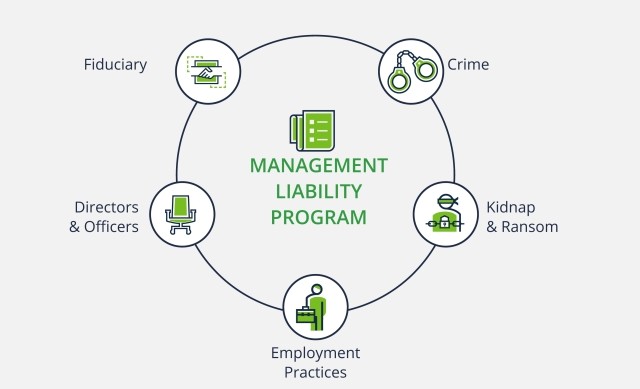Guide
Guide to Private Company D&O Insurance 2024
As of March 2024, there were 1,200 unicorn companies globally. While a fraction may go public in the next few years—estimated at less than 20% by some accounts—the rest will pursue acquisitions or continue growing the company.
Whatever the path, private companies face risks (regulatory risks, litigation risks), and their directors and officers are subject to being sued personally.
D&O liability insurance is a powerful tool designed to help private companies transfer the financial burden of these risks away from individual directors and officers and the companies they serve.
Woodruff Sawyer's 2024 Guide to Private Company D&O Insurance provides a comprehensive understanding of why and how private companies can obtain the right D&O coverage.
You can gain access to the report instantly here, and read on for highlights.
Why D&O Insurance?
Every private company doesn't necessarily need to purchase D&O insurance.
That said, private companies purchase D&O insurance for a variety of reasons, including:
- Attracting top directors: D&O insurance makes board positions more appealing.
- Investor requirements: Some venture capital and private equity firms mandate D&O insurance for portfolio companies.
- Emerging risks: Rapidly evolving risks, particularly for disruptive companies entering uncharted areas, can be mitigated with D&O insurance.
- Regulatory exposures: D&O insurance can help cover legal defense costs for government enforcement actions against individuals.
- Bankruptcy protection: In insolvency, D&O insurance can shield directors’ and officers’ personal assets from creditor or trustee suits.
- Mergers & acquisitions: D&O insurance provides indemnity for directors and officers post-deal, especially if the acquiring company is unwilling to do so.
- Shareholder lawsuits: As the number of shareholders increases, so does the risk of lawsuits, which D&O insurance is designed to cover.
- Considering an IPO, direct listing, or de-SPAC transaction. Purchasing D&O insurance while still private is a strategic move that not only helps build relationships with insurers but also eases the transition to public company status.
Private companies can purchase D&O insurance on a standalone basis or combine the D&O policy with other related lines of insurance.

Many younger, smaller private companies buy $1 million to $3 million in D&O insurance limits. Companies typically purchase in the $5 million to $10 million range as they mature—with some unicorns and decacorns purchasing much more.
Either way, being aware of common claims against private companies can help you determine what limit of insurance is right for you and your company.
For example, private companies have experienced losses above $1 million due to lawsuits with allegations such as:
- Breach of fiduciary duty
- Failing to disclose material aspects of business operations to investors
- Antitrust business practices
- Improper conduct concerning engagements with SEC registrant issuers
- Improperly obtaining and using confidential information to improve results from internal audits
- False Claims Act violations
- Illegal sales practices
Finally, if and when a private company decides to go public, whether through a traditional IPO, a direct listing, or de-SPAC transaction, you will need to start the process of transitioning from private to public company D&O insurance.
Private or public, your choice of broker for your D&O insurance matters. This is a line of insurance that should be placed by a specialist and not a generalist for several reasons, including the fact that:
- Engaging a D&O insurance expert means you have a trusted advisor on your team who is in the market every day and knows the latest available terms and conditions, providing you with the guidance and support you need.
- A better-negotiated, broader policy is generally not more expensive than a poorly negotiated policy.
- Working with a brokerage that places many D&O policies ensures that private company insurance carriers will pay attention to your account.
- The chance that a claim will be paid is greater when you work with a broker with deep D&O claims management experience.
You can get more details on all things private company D&O insurance by downloading the latest iteration of Woodruff Sawyer’s Guide to Private Company D&O Insurance.
Author
Table of Contents













